2. Attitudes are more complex than they first appear.
3. We form attitudes in several ways.
4. A need to maintain consistency among all of our attitudinal components often motivates us to alter one or more of them.
5. We use attitude models to identify specific components and combine them to predict a consumer’s overall attitude toward a product or brand.
6. The communications model identifies several important components for marketers when they try to change consumers’ attitudes toward products and services.
7. The consumer who processes a message is not necessarily the passive receiver of information markets once believe him or her to be.
8. Several factors influence the effectiveness of a message source.
9. The way a marketer structures his or her message determines how persuasive it will be.
10. Audience characteristics help to determine whether the nature of the source or the message itself will be relatively more effective.
It is important for consumer researchers to understand the nature and power of attitudes.
태도(attitude)
: 사람들(자신을 포함해서), 대상들, 광고들, 또는 쟁점들에 대한 영속적이고 일반적인 평가
실용적(Utilitarian)
가치-표현적
(Value-expressive)
자아-방어적
(Ego-defensive)
지식
(Knowledge)
Objective 2
Attitudes are more complex than they first appear.
태도의 ABC 모델
감정(Affect)
행동(Behavior)
인지(Cognition)
표준학습 위계(Standard Learning Hierarchy)
인지->감정->행동->태도
저관여 위계(Low-Involvement Hierarchy)
인지->행동->감정->태도
경험적 위계(Experiential Hierarchy)
감정->행동->인지->태도

- 오늘 본 자료가 없습니다.
- [경영학원론] 3M의 기업문화사례연구
- [조직론] 지식경영의 성과와 기업문화 및 조직동기유발이 가지는 상관관계에 관한 연구
- 해외시장 진출 방식의 실행
- 닭꼬치 사업계획서 [사업개요, 사업 내용, 시장조사와 분석, 마케팅 분석 등]
- 경영전략론_1 산업의 수익을 결정하는 마이클 포터의 5force에 대하여 특정 산업의 예를 들어 설명하시오 2 핵심역량을 결정하는 3가지 요인과 핵심역량 전략에 관하여 사례를 통하여 설명하시오 3 4차 산업혁명에 따른 제품(product) 일하는 과정(process) 요구하는 사람과 깅버문화(people)가 어떻게 변화하여야 하는지에 관한
해당 정보 및 게시물의 저작권과 기타 법적 책임은 자료 등록자에게 있습니다. 위 정보 및 게시물 내용의 불법적 이용,무단 전재·배포는 금지되어 있습니다. 저작권침해, 명예훼손 등 분쟁요소 발견 시 고객센터에 신고해 주시기 바랍니다.



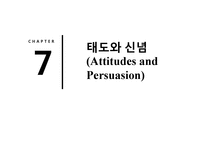
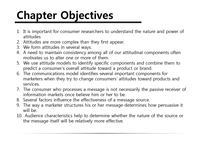
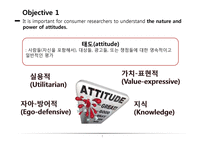
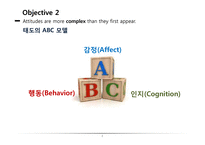
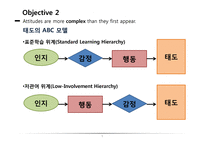
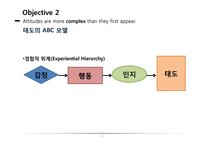

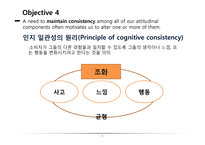
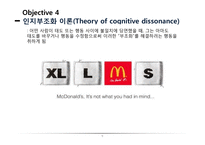

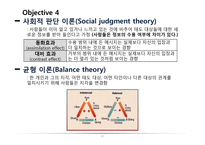
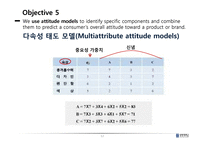
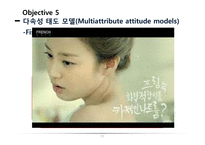
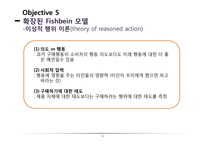
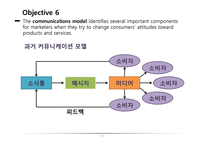
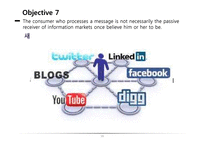
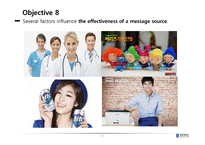
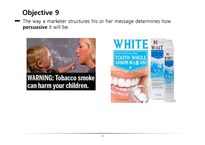
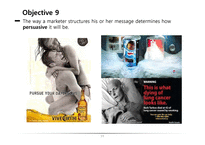
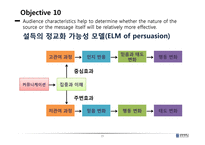
 분야
분야

